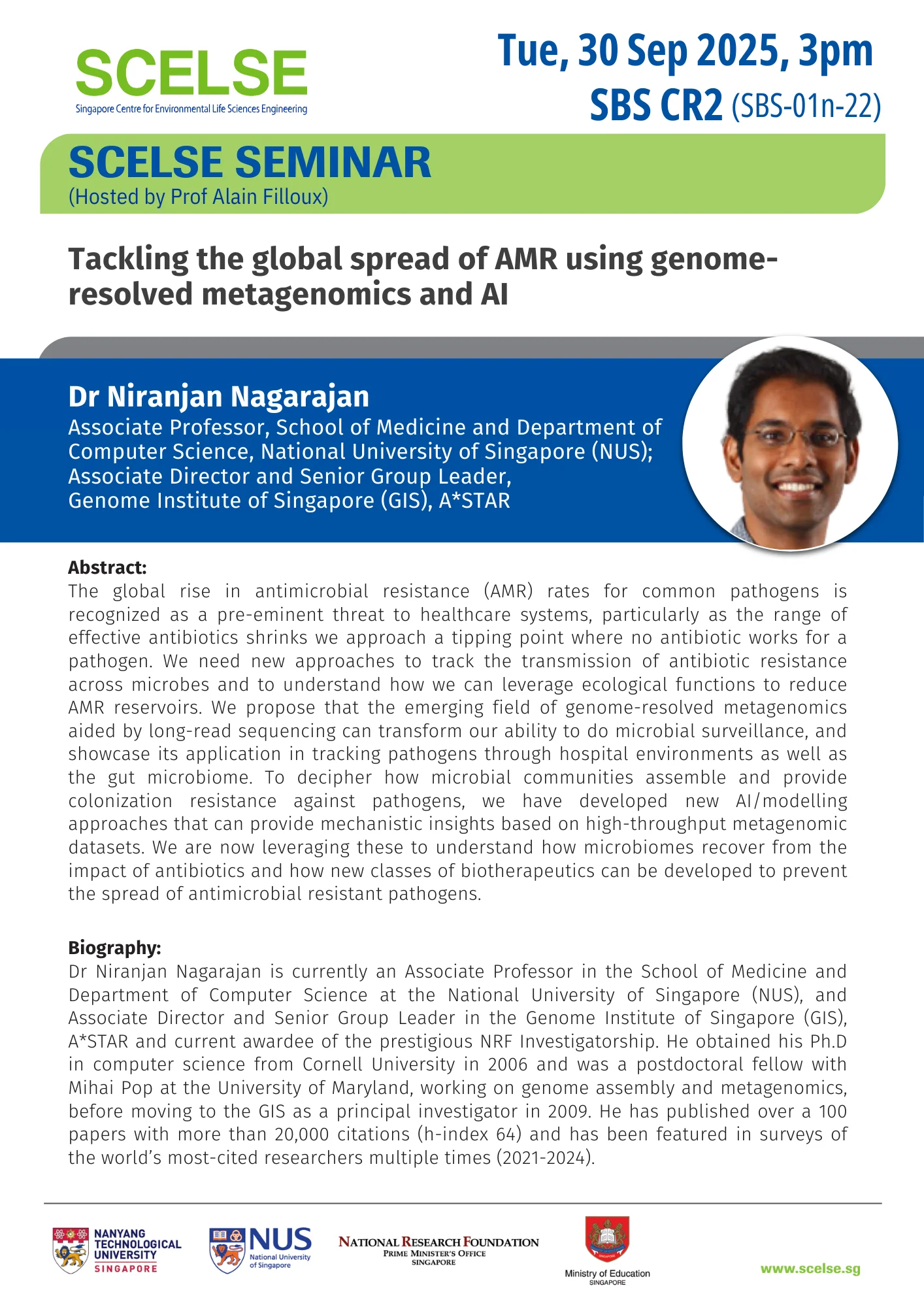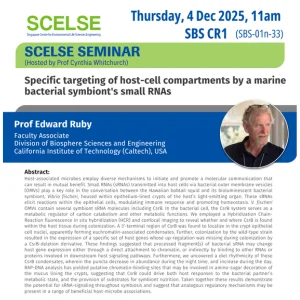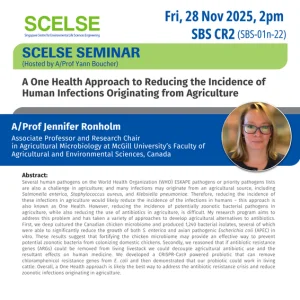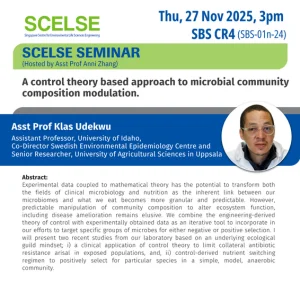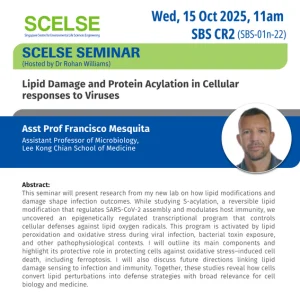Tackling the global spread of AMR using genome-resolved metagenomics and Al
Date: Tuesday, 30 Sep 2025
Time: 3pm –4pm
Venue: SBS CR2 (SBS-01n-22)
Abstract:
The global rise in antimicrobial resistance (AMR) rates for common pathogens is recognized as a pre-eminent threat to healthcare systems, particularly as the range of effective antibiotics shrinks we approach a tipping point where no antibiotic works for a pathogen. We need new approaches to track the transmission of antibiotic resistance across microbes and to understand how we can leverage ecological functions to reduce AMR reservoirs. We propose that the emerging field of genome-resolved metagenomics aided by long-read sequencing can transform our ability to do microbial surveillance, and showcase its application in tracking pathogens through hospital environments as well as the gut microbiome. To decipher how microbial communities assemble and provide colonization resistance against pathogens, we have developed new Al/modelling approaches that can provide mechanistic insights based on high-throughput metagenomic datasets. We are now leveraging these to understand how microbiomes recover from the impact of antibiotics and how new classes of biotherapeutics can be developed to prevent the spread of antimicrobial resistant pathogens.
Speaker:
Dr Niranjan Nagarajan
Associate Professor, School of Medicine and Department of Computer Science, National University of Singapore (NUS);
Associate Director and Senior Group Leader, Genome Institute of Singapore (GIS), A*STAR
Biography:
Dr Niranjan Nagarajan is currently an Associate Professor in the School of Medicine and Department of Computer Science at the National University of Singapore (NUS), and Associate Director and Senior Group Leader in the Genome Institute of Singapore (GIS), A*STAR and current awardee of the prestigious NRF Investigatorship. He obtained his Ph.D in computer science from Cornell University in 2006 and was a postdoctoral fellow with Mihai Pop at the University of Maryland, working on genome assembly and metagenomics, before moving to the GIS as a principal investigator in 2009. He has published over a 100 papers with more than 20,000 citations (h-index 64) and has been featured in surveys of the world’s most-cited researchers multiple times (2021-2024).
